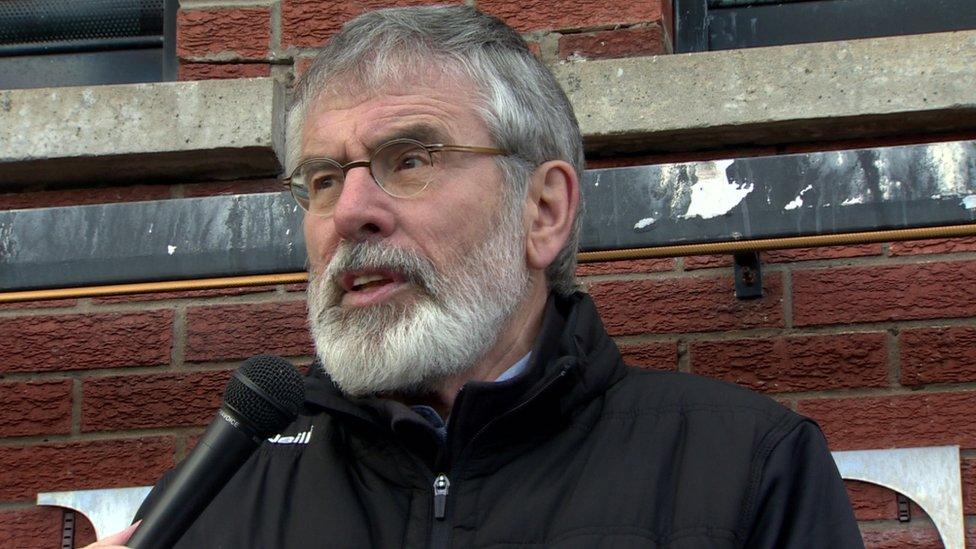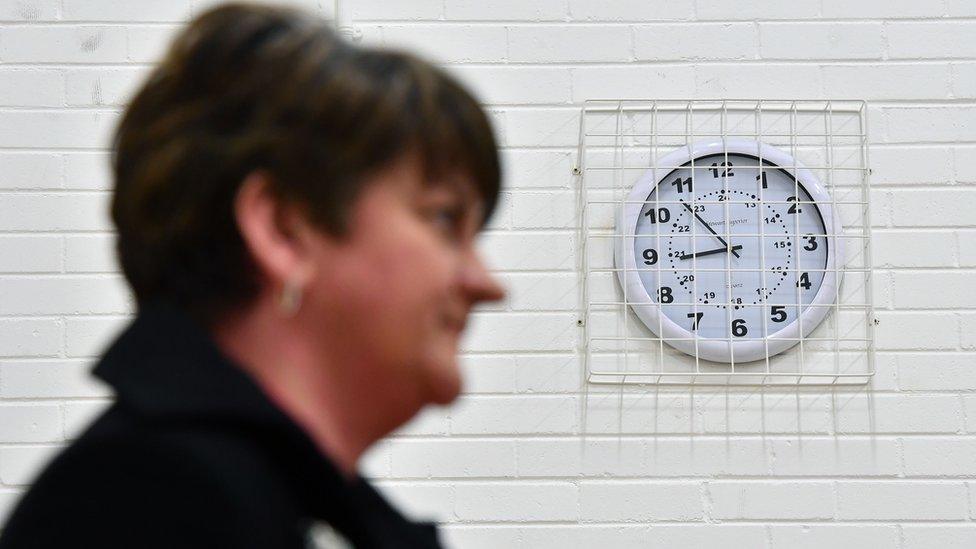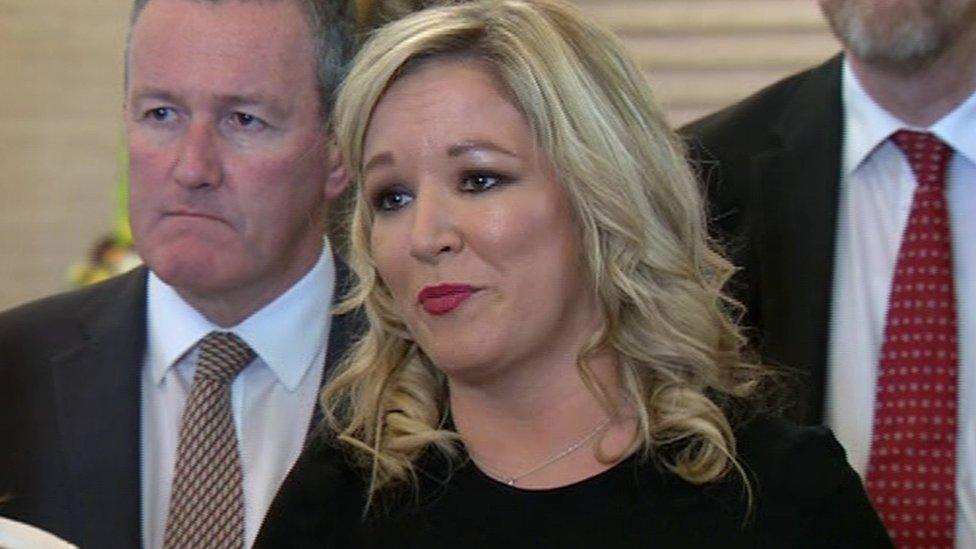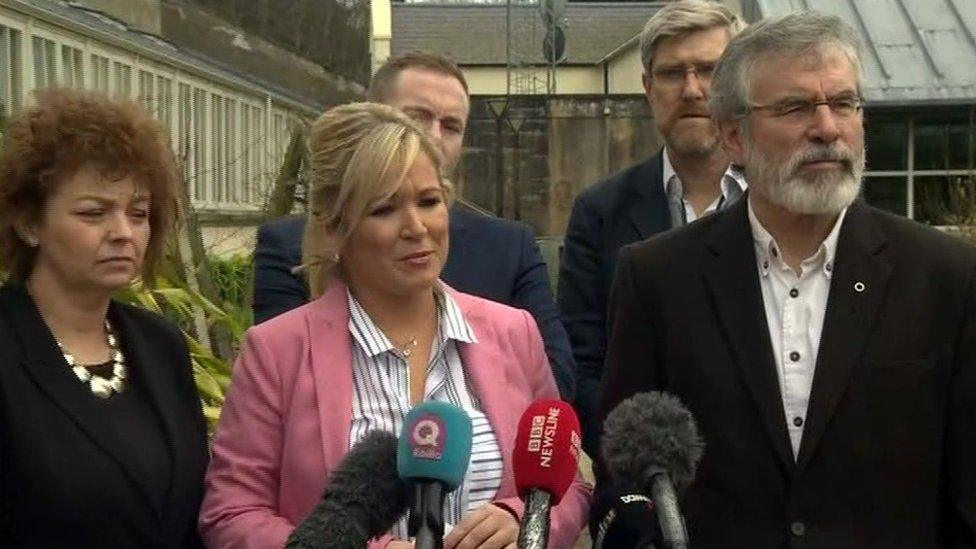Sinn Féin opposes extension to Stormont talks deadline
- Published

Gerry Adams said there cannot be continuous negotiation and re-negotiation of political deals
Sinn Féin is opposed to extending the deadline on talks aimed at forming a new Northern Ireland Executive, the party's leader, Gerry Adams, has said.
Parties have until Monday 27 March to reach a deal, or voters will face the prospect of going back to the polls for a second snap election within months.
Mr Adams was speaking at a Sinn Féin meeting in Newry on Wednesday evening.
"There cannot be continuous negotiation and re-negotiation of agreements already made," he said.
"So Sinn Féin is opposed to any extension of Monday's deadline.
"It is possible for agreement to be reached in the coming days," he added.
The assembly election held at the beginning of March saw an end to the unionist majority at Stormont, with Sinn Féin now holding just one seat fewer than the Democratic Unionist Party (DUP).
That election was held just 10 months after the previous one in May 2016.
Direct rule
Stormont's previous power-sharing government collapsed in January after Northern Ireland's then deputy first minister, Sinn Féin's Martin McGuinness, resigned.
Martin McGuinness appeared frail as he resigned in January
He stepped down after a row between Sinn Féin and the DUP over a green energy scheme scandal - the Renewable Heat Incentive (RHI).
Mr McGuinness died on Tuesday after a short illness and his funeral will be held on Thursday.
Under Northern Ireland's power-sharing agreement, the executive must be jointly run by unionists and nationalists, with the largest party being invited to put forward a candidate for first minister.
Ultimately, if there is no agreement on forming an executive, direct rule from the UK parliament at Westminster could return for the first time in a decade.
'Serious step'
However, Mr Adams also spoke out against any suspension of the assembly, in the event the parties fail to come to an agreement on the formation of a new executive.
"In 2006, the British and Irish governments agreed in a joint statement that the restoration of the political institutions would see the British government's power to suspend the assembly lapse for good," he said.
"They also agreed, if the executive was not formed, to begin detailed work on British-Irish partnership arrangements to ensure that the Good Friday Agreement is actively developed across its structures and functions.
"While the governments have not developed the British-Irish partnership arrangements envisaged if the executive was not formed at that time, the British government's power to suspend the assembly is gone.
"Of course this legislation could be reintroduced at any time but this would be a very serious step, which the Irish government would be compelled to oppose.
"We look to the taoiseach [Irish prime minister] to make that clear," he added.
- Published28 March 2017

- Published13 March 2017

- Published10 March 2017
